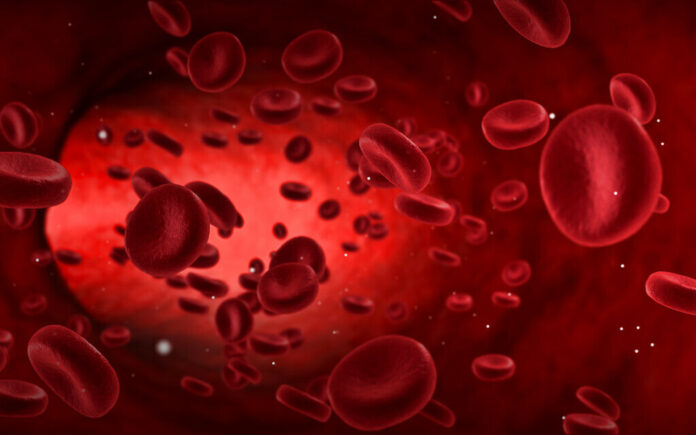Genetic testing firm 23andMe has said it has found preliminary evidence that people with type O blood may be less susceptible to contracting COVID-19.
In a blog post Monday, the company said initial data from a study it’s doing on the virus indicated those with type O blood were 9-18 percent less likely to have tested positive for the coronavirus.
Among those exposed to the virus such as medical workers and other emergency personnel, those with type O were 13-16% less likely to test positive, according to 23andMe.
Get The Times of Israel’s Daily Edition by email and never miss our top stories
Free Sign Up
People with type AB blood were most likely to test positive in the study of over 750,000 people, though the firm stressed there was no significant statistical difference between those with AB and those with blood types A and B. This finding held when adjusted for factors such as age, sex, race, ethnicity, body mass index and comorbidities.
Type O blood, specifically O-positive, is considered the most common blood type in the world, though type A is also very common.
23andMe, which emphasized the data was preliminary, said the findings seemed to boost other recent studies looking at potential links between blood type and the likelihood a person may contract the virus, as well as between one’s blood type and the severity of COVID-19.
It pointed to an Italian-Spanish study recently published on a public server — and not yet peer-reviewed — which indicated that type O may be less susceptible to serious illness while type A may be more at risk.
As the COVID-19 pandemic spreads across the globe, scientists have been trying to understand why the virus can infect many without any symptoms showing at all, while killing some young, otherwise entirely healthy people in a matter of days. Researchers have been looking at various genetic characteristics of patients that could explain the wildly differing presentation of the illness.

Magen David Adom workers in protective clothing evacuate a suspected coronavirus patient to the COVID-19 unit at Shaare Zedek Medical Center in Jerusalem, April 3, 2020. (Nati Shohat/Flash90)
“I really believe we have the potential to find genetic associations that will help us know who is the most vulnerable and can we do more to potentially protect those people,” Anne Wojcicki, CEO of 23andMe, said in an interview with Bloomberg.
She said the company, which is known for its private DNA tests, was providing 10,000 free kits for those who have been sick with COVID-19 as part of the ongoing study.
Wojcicki also said the company was working to identify any genetic mutations that could make people less susceptible to COVID-19.






